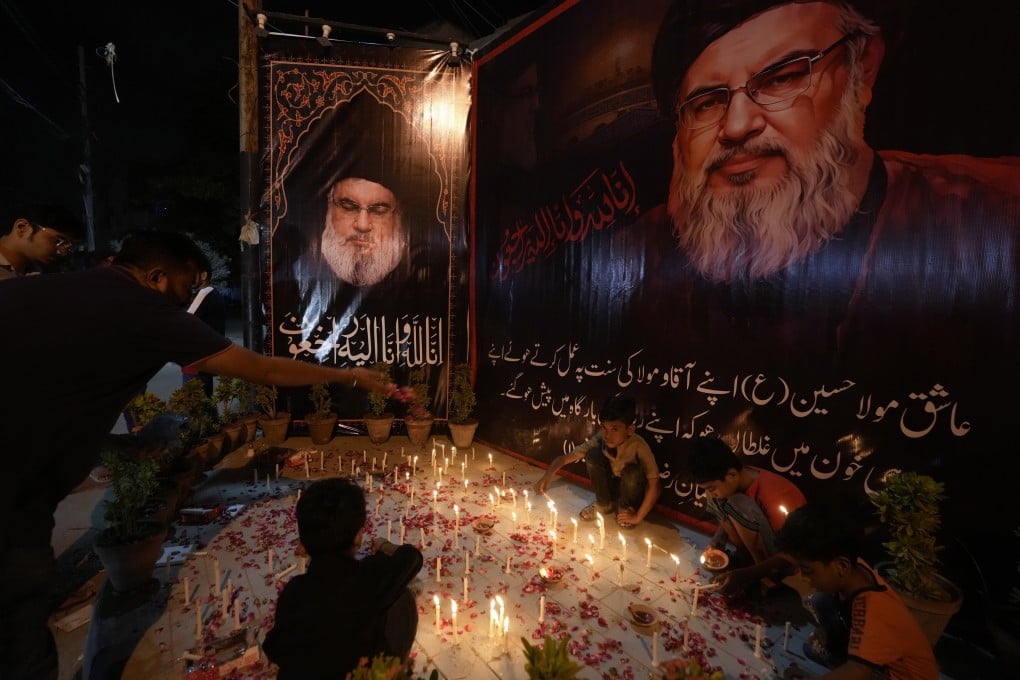Israel escalates pressure on Iran with Hezbollah boss Hassan Nasrallah’s killing
While Khamenei’s reaction shows Tehran is in no rush to hit back, experts say it could build nuclear weapons to restore deterrence against Israel

Its intelligence had long tracked Hassan Nasrallah and it recently learned he planned to move, which would have closed the window of opportunity, according to a senior official who asked not to be identified discussing confidential matters. Prime Minister Benjamin Netanyahu gave the order on Friday from his hotel room in New York, just before giving a fiery speech to the United Nations General Assembly that rejected a US-backed push for a ceasefire in Lebanon.
After a week of appeals from world leaders at the UN to avoid the risk of all-out war in the Middle East, Israel seems to be doing just the opposite, its warplanes demolishing what Iran and Hezbollah had long set as red lines.
Still, judging by supreme leader Ayatollah Ali Khamenei’s first reaction, Iran is in no rush to escalate. President Masoud Pezeshkian also stopped short of pledging a direct and immediate attack on Israel – and in his international debut at the UN he struck a relatively restrained note.
Netanyahu called Nasrallah’s death “necessary” to his quest to return Israelis in the north who had fled Hezbollah’s attacks over the last 11 months to their homes. But in a video address, he had a warning for his people: “In the coming days, we will face significant challenges.”